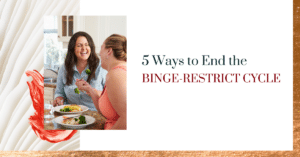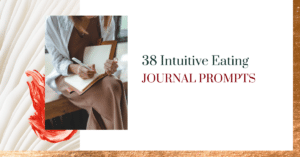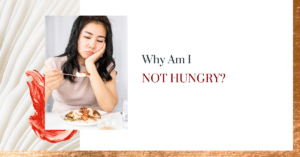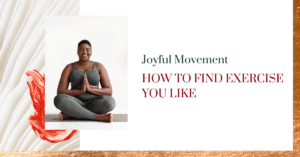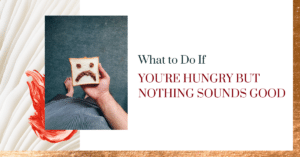How to Stop Feeling Guilty After Eating
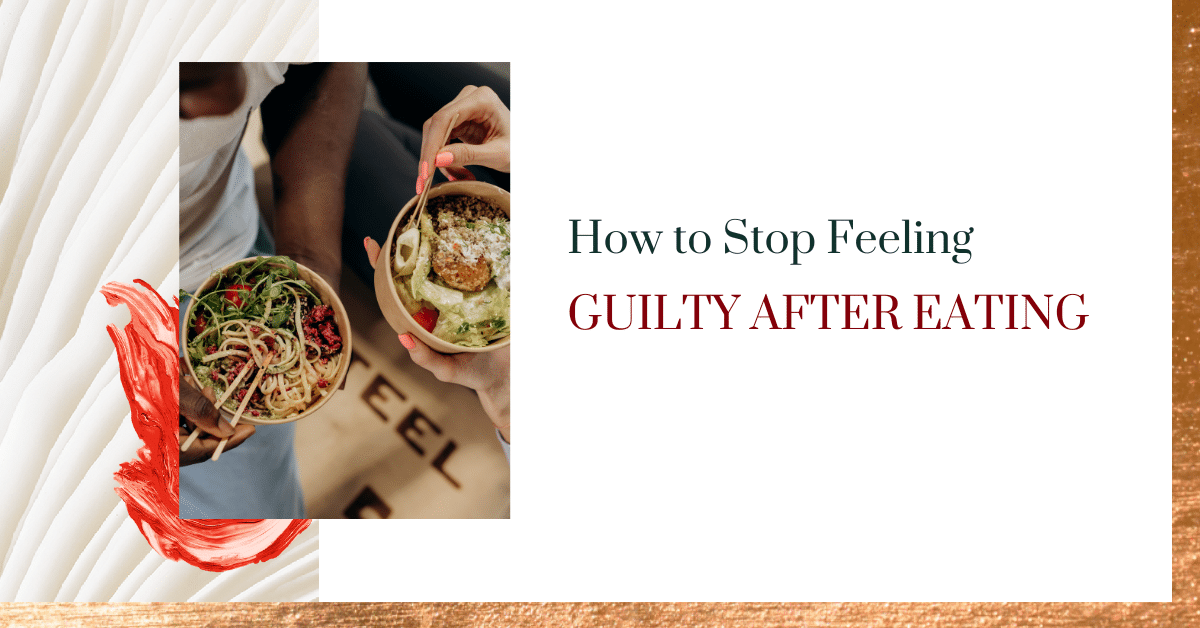
Feeling guilt after eating is normalized, but it’s not “normal”. It’s possible not to feel that way and to have eating be more of a neutral (and enjoyable) experience. Read on to learn more about why you may feel food guilt as well as four steps to help you to stop feeling guilty after eating.
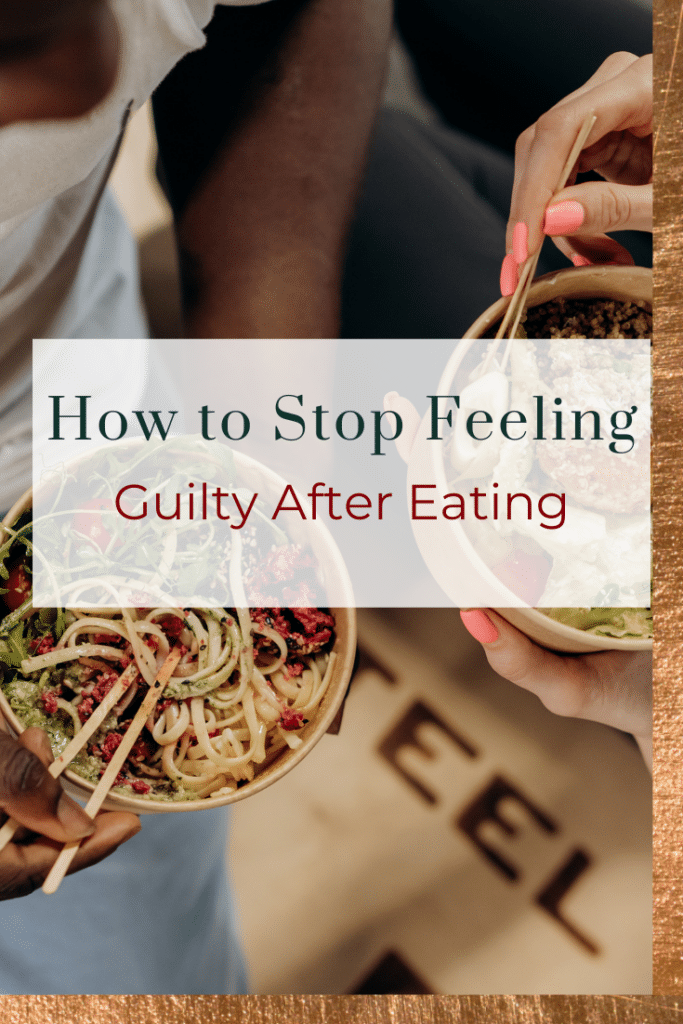
Let me start by asking you a question: if you feel guilty after you eat, what foods cause this feeling? My guess is that it’s not all foods, but rather specific foods or food groups that you consider “bad” and/or “unhealthy”.
Maybe you feel guilty after eating something you think you “shouldn’t” have eaten. Or perhaps you feel guilty when you don’t eat foods that you think you “should” be eating (which are usually those that we’ve internalized as “good” and/or “healthy”). Or all of the above!
While feeling guilty after eating is normalized, it’s not “normal”. That doesn’t mean there is something wrong with you – it means there is something wrong with our culture, and the labels and morality our society has attached to food.
The Food and Morality Link
We’ve been taught to consider and label certain foods as “good” or “bad”. The guilt then comes when we think we’ve done something “bad” or “wrong” by eating a “bad food”, that is, doing something we “shouldn’t have done”.
What we choose to eat – or not eat – becomes an issue of our morality and our “goodness”. The decision to order a burger or a salad comes down to our moral virtue. Am I going to be “good” today, or “bad”?
Alan Levinovitz, an author and Associate Professor of Religion at James Madison University, has spoken about this phenomenon. In the article Why “natural” food has become a secular stand-in for goodness and purity (disclaimer: some diet culture present in that article) he shares:
“Natural” was sort of a secular stand-in for a generalized understanding of goodness, which in religion you’d call holiness, or purity, or something like that. “Nature,” with a capital N, was taking the place of God. In a secular society, we don’t look to religions to tell us what to eat or how to heal ourselves, so you need a secular substitute when it comes to generalized guidance for what you can eat, and that secularized substitute is nature.
So the idea that natural is synonymous with good and unnatural is synonymous with evil really does run through history strongly — it’s just how we conceive of what’s natural that gets complicated…the solution to a suite of very complicated problems becomes just eating the way you’re meant to eat, a.k.a. eating natural foods.
(Interestingly enough, the definition of what is most “natural” has shifted over the years. According to historian Rachel Laudan, “For most of history, people wanted the most refined, the most processed, the most thoroughly cooked food possible. This was regarded as the most simple and natural food, because all the dross had been removed by the purifying effects of processing and cooking…Ideal foods were sugar, clarified butter or ghee, white bread, white rice, cooked fruit, wine and so on.”)
Human beings are wired to seek safety and belonging. In our current culture, not only are certain foods linked with morality, but certain bodies are as well. Thin bodies are celebrated and considered “good”, while fat bodies are denigrated.
As Dr. Sabrina Strings breaks down in her book Fearing the Black Body: The Racial Origins of Fatphobia,
“Racial scientific rhetoric about slavery linked fatness to ‘greedy’ Africans and religious discourse suggested that overeating was ungodly…In the United States, fatness became stigmatized as both black and sinful. Slenderness served as a marker of moral, racial and national superiority.”
Humans also dislike ambiguity. The unknown can be anxiety-provoking. So we tend to simplify things into two mutually exclusive categories: good/bad, either/or, right/wrong. This type of binary thinking makes us feel safe.
Diet culture plays right into binary thinking. The implication of “If you do this, everything will be okay” is part of the reason dieting behaviors feel safe and secure, and moving away from them can feel scary.
Needless to say, taken in the context of these cultural beliefs, it makes so much sense why eating and food are so often associated with guilt and shame.
If we can just eat “right” and if we can just make our bodies conform to society’s “ideal”, then we will be “good” – aka accepted, respected, safe.
Living in our culture, we are swimming in beliefs about food and body size, so it makes sense that we would participate in working to achieve these food, eating, and body ideals. But these are the same beliefs that disconnect us from our bodies and ourselves and teach us to deny what our bodies want and need in favor of what society deems “acceptable.” This leads to a lot of problems, both individually and collectively.
The Problem with Food Guilt
For many people, guilt is considered a helpful tool for making behavioral changes. Many of my clients share with me that they feel as though if they don’t feel guilty or beat themselves up, they’ll never make any positive behavior changes.
In reality, the opposite is true: while guilt may sometimes work in the short-term, long term it only serves to disconnect us further from our bodies and ourselves and does not help when it comes to making sustainable food behavior changes.
From a food and eating perspective, guilt keeps us stuck in the deprivation-binge pendulum and continues to perpetuate the dieting cycle. When you feel guilty after eating, you send your body the conscious or subconscious message, “Tomorrow, I’ll try not to do this again,” which your body hears as, “Better get food in now.” Food guilt leads to further stress and food restriction, which just starts the cycle of guilt, restriction, and body disconnection all over again.
Plus, when we feel guilty after eating, any pleasure or joy that we may have gotten from our meal ends up dissipating. What’s left in its place – guilt, shame, pain – often ends up leading to more emotional eating, as we try to soothe ourselves. (This isn’t just mental – guilt can cause your body to release stress hormones, which lead to a rise in appetite, so you actually feel hungrier.)
Feeling guilty after eating, as pretty much every single one of my clients reports, can take up a LOT of brain space and time. Worrying, stressing, and feeling guilty about food can have a negative impact not just on our food behaviors but also on our relationships with others.
Many of my clients report skipping social functions or avoiding seeing friends because they are worried about what food choices they’ll have. Feeling guilty also takes us out of the moment, leading us to be not as present with the people we are with. This can impact our mental and emotional well-being.
Now you might be wondering something along the lines of “But isn’t it a fact that certain foods are bad for our health? And others that are better for us?”. Yes, certain foods have more nutrients than others, but it’s not so clear cut as “eat this and don’t eat that”.
Plus, as I shared above, even if that is true when we try to change our eating behaviors from a place of guilt or shame, it causes a rebound effect (see: the diet cycle).
How to Stop Feeling Guilty After Eating
So, what do you do instead? Work with your food guilt thoughts which, in doing so, will slowly start to challenge and shift both your thoughts, your feelings about those thoughts, and your beliefs about food.
Something that blew my mind the first time I heard it: just because you have a thought does not mean that it is true. You have thousands of thoughts every day. Some are true, and some are not true. Some of the thoughts are helpful, and some are not so helpful.
Problems don’t arise from the thought itself, rather problems can happen because of your reaction to that thought – specifically from the thoughts and feelings that you have about that thought.
When you attach or fuse yourself to a thought and view it as being true and worth listening to the thought – and your reaction to it – can stand in the way of change and growth.
All that being said, here are four tools that can help you to stop feeling guilty after eating.
1. Bring awareness to the guilty or self-critical thoughts.
The better you can understand and recognize when the food guilt is coming up in the moment, the more you can work with those thoughts. When we aren’t fully aware of how we speak to ourselves and the specific words or phrases that we use to criticize or shame ourselves, then we end up reacting to the thoughts.
When you can bring your thoughts to the surface, you can identify what assumptions are behind that thought, and get more critical about that thought.
Some questions to consider when you’re practicing bringing awareness to food guilt:
- How often do these thoughts occur?
- When are they more likely or less likely to occur?
- When you have this thought, what other thoughts, feelings, emotions, judgments, or body sensations do you feel?
- Write down anything else that you notice when you have this thought.
Once you have more awareness, you are then able to take a “pause” (see number 2 below) to observe what is going on and then consciously choose how you are going to respond to the thought.
The ability to notice your thoughts takes some practice, so don’t get discouraged if it feels challenging at first. Over time, as you build the skill, it will get easier and easier to bring awareness to any thoughts you are having (and to notice when you are getting carried away by them).
2. Separate yourself from the thought.
Often, a fairly neutral thought like “I ate a lot of carbs” can lead to a cascade of thoughts and feelings, including guilt, self-judgment, and shame. For example, “I ate a lot of carbs” may then cause thoughts of “I shouldn’t have done that” > “What is wrong with me? I always do this. Why can’t I just get it together?”
When you bring awareness to your thoughts, you can notice them as just thoughts and you can begin to separate yourself from the thought. This bit of space gives you a chance to work with the thoughts instead of following them and spiraling into a cascade of guilt and shame.
Using the example above, the thought “I ate a lot of carbs” can become “I’m having the thought that I ate a lot of carbs.” > “I’m noticing that I’m having the thought that I ate a lot of carbs.”
Working with the thought, you can consider: is it a helpful thought? Or is it unhelpful? How is that thought affecting current and future eating behaviors?
For many people, the food guilt thoughts cause disconnection between themselves and their body, and what their body needs. These guilty thoughts after eating can also result in all-or-nothing thinking and can keep you in the deprivation-binge pendulum. And remember, we know that guilt and shame do not lead to long-term behavioral changes.
When you are aware of your thoughts as they are happening and can call them out for what they are, then you can “pause” before having an automatic reaction to the thought. Over time, the more you can practice this, these unhelpful thoughts will no longer dominate your experience or affect your behaviors as much.
3. Challenge and reframe the food guilt thoughts.
Ok, you’ve identified the thoughts as they’re happening, begun to separate yourself from the thought, and considered whether these thoughts are helpful or unhelpful. We also know that thoughts are just that: thoughts. They can be worked with so that they don’t cause us as much emotional pain, or affect our behaviors.
Work to challenge the thoughts you’re having by reframing them to something more helpful. This isn’t meant to be gaslight-y: the alternative thought should be something that is realistic and will likely be more balanced (and less all-or-nothing) than the original thought.
When you notice any absolutes, like “should” or “shouldn’t”, or any black-and-white thinking, replace those with words like may, can, or is okay. Some examples:
- “If I have dessert that will be way too much sugar” >> “It’s okay to have dessert tonight.”
- “I shouldn’t have another piece of pizza” >> “I can have another piece of pizza if I want to.”
Some other things to consider when working to reframe the food guilt or the guilt you feel after eating:
- What’s the bigger picture?
- Is there another way of looking at this situation?
It also helps to use curiosity and be able to make observations rather than judgments. For example, “I can’t believe how much I ate at lunch today,” can instead become, “I notice that when I don’t have enough carbs at breakfast, I become ravenous by 11:00 a.m. and have a hard time stopping when I’m full at lunch.”
Challenging and reframing your thoughts is an active process. Over time, the more you are replacing the unhelpful food or eating guilt thoughts with more helpful, balanced thoughts, the easier and faster those new alternative thoughts will be what pop up first (rather than the guilty voice).
4. Respond with Compassion.
The antidote to guilt and shame: compassion. When you recognize the food guilt and start to notice yourself following those thoughts down into a shame spiral, take a pause: can you give yourself some kindness in this moment?
It can be difficult to be nice to ourselves when we’re struggling, however, research shows that consistently responding to ourselves with compassion actually rewires and reprograms our brains (I can also say anecdotally that this is absolutely true both from my own experiences and the experiences of my clients). This means that, over time, that inner guilty food voice will quiet down while your self-compassionate voice strengthens.
Some examples of self-compassionate statements that you can say to yourself when the food guilt pops in:
- I am learning to trust myself with food.
- I am learning to include foods I find satisfying and enjoyable.
- I am learning to overcome past food rules.
- This is a process, and I am learning a lot about myself.
When you begin to shift how you think about and behave toward food, you can improve your relationship to food and in doing so, find freedom and liberation.
If you’re looking for more support in getting rid of food guilt and healing your relationship to food:
Check out my Unapologetic Eating 101 Course, an online, self-paced program to liberate yourself from dieting and make peace with food and your body.
I also offer personal nutrition coaching support virtually: check out our intuitive eating nutrition coaching packages.
My book, Unapologetic Eating: Make Peace with Food and Transform Your Life, is also a great resource that includes information, research, and reflection prompts to help you move away from dieting and come back home to your body, so you can live your most unapologetic, liberated life.
Author Bio:
The post was written by Alissa Rumsey, MS, RD, CSCS, a registered dietitian and Certified Intuitive Eating Counselor. She specializes in weight-inclusive care, intuitive eating, body image healing, mindfulness, self-compassion, and healing from chronic dieting, disordered eating, and eating disorders. Alissa holds a Bachelor’s Degree in Nutrition and Exercise Science, and a Master’s Degree in Health Communications, and is also an NSCA Certified Strength and Conditioning Specialist.
share the love
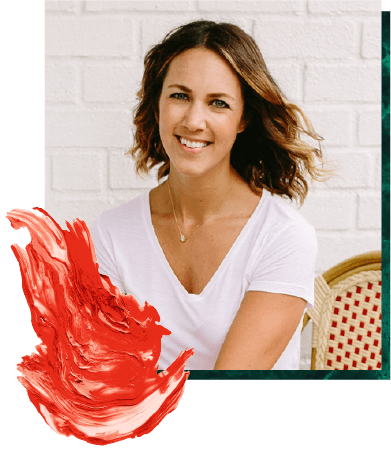
about
Alissa Rumsey, RD.
Alissa Rumsey, MS, RD, CDN, CSCS (pronouns she/her/hers) is a registered
dietitian, nutrition therapist, certified intuitive eating counselor, and the author of
Unapologetic Eating: Make Peace With Food and Transform Your Life. Alissa is
passionate about helping people reclaim the space to eat and live,
unapologetically.
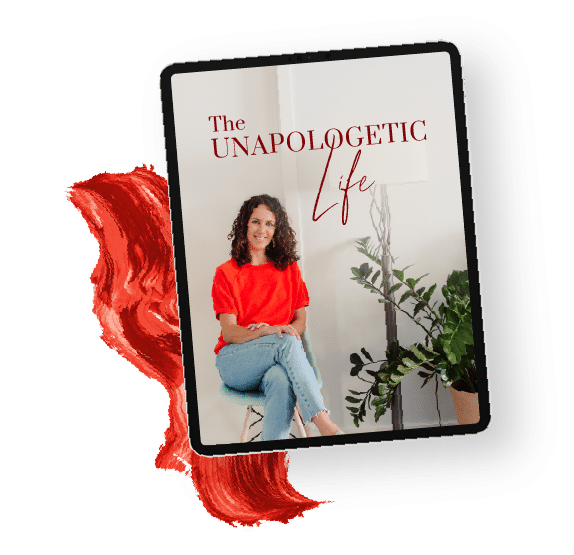
A twice-a-month round-up of inspirational stories, lessons, practical tips and encouragement for living your most authentic, unapologetic life.
The Unapologetic Life
RECENT POSTS
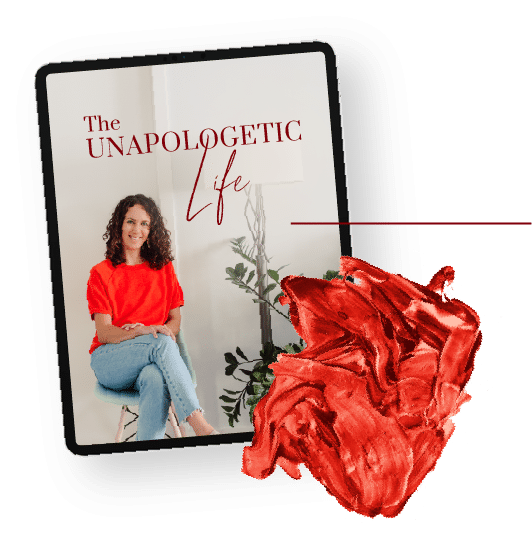
The Unapologetic Life
A twice-a-month round-up of inspirational stories, lessons, practical tips and encouragement for living your most authentic, unapologetic life.






